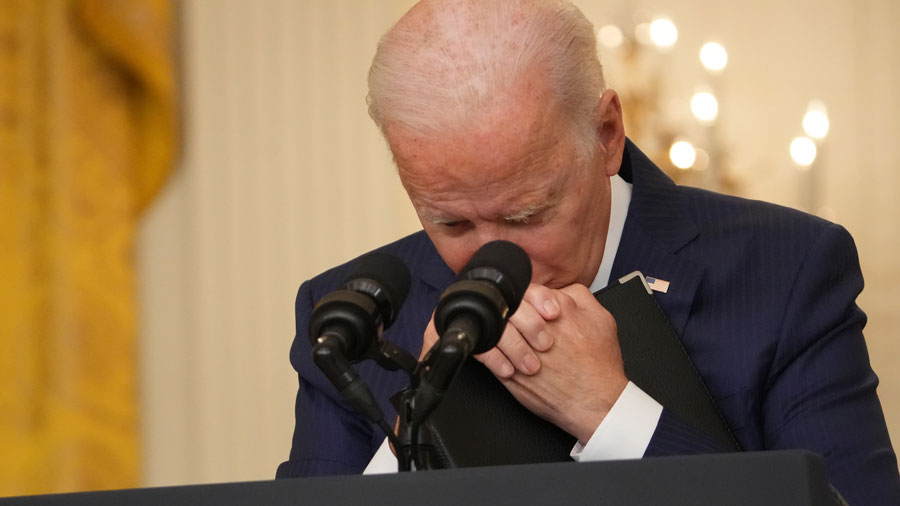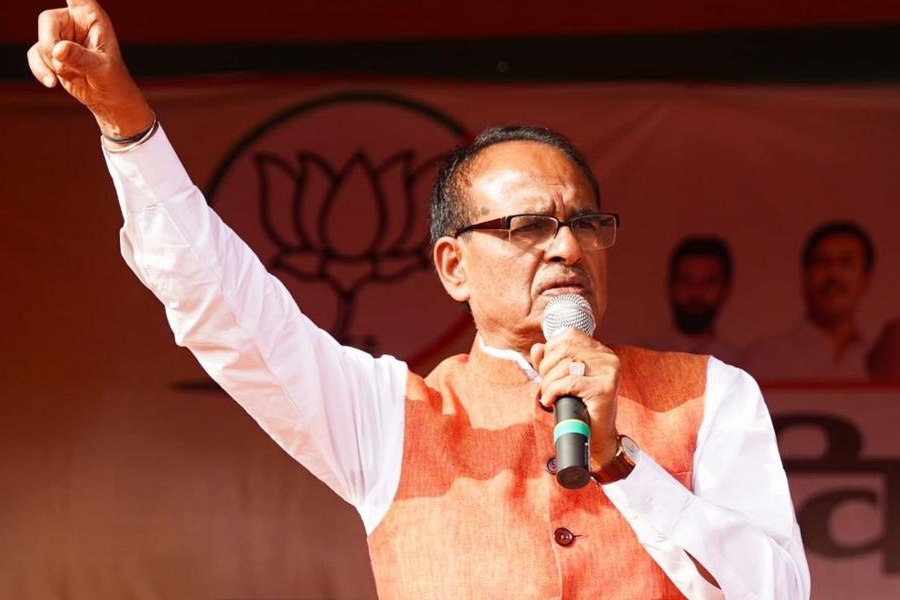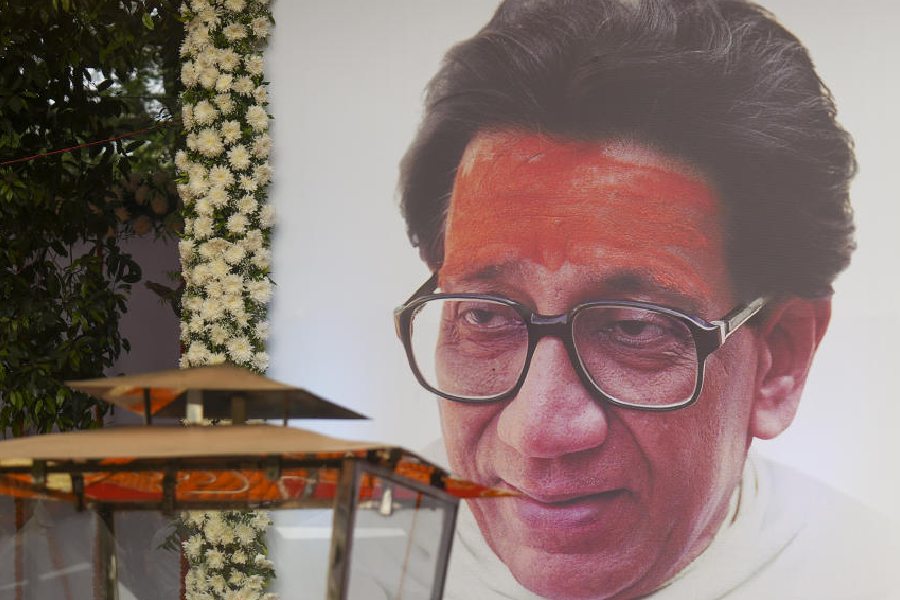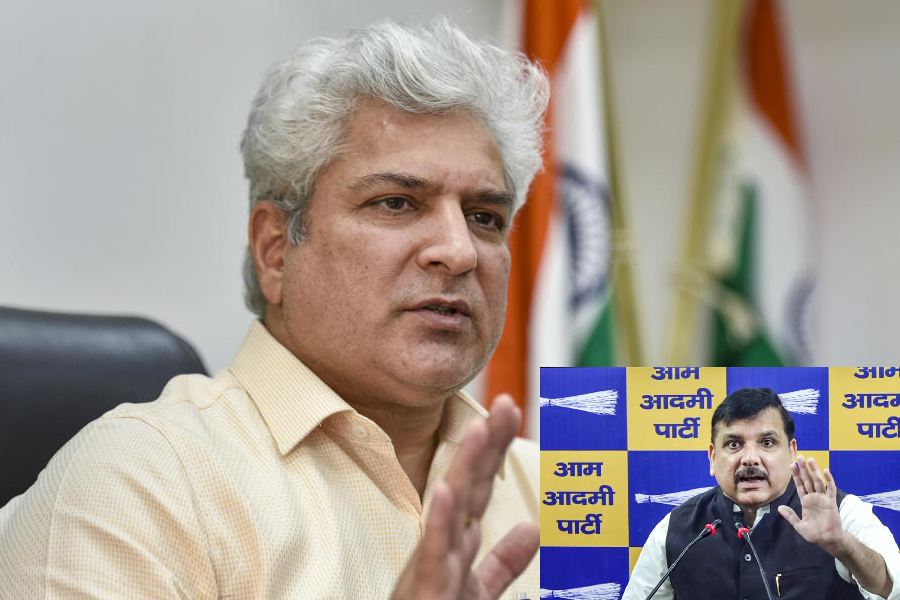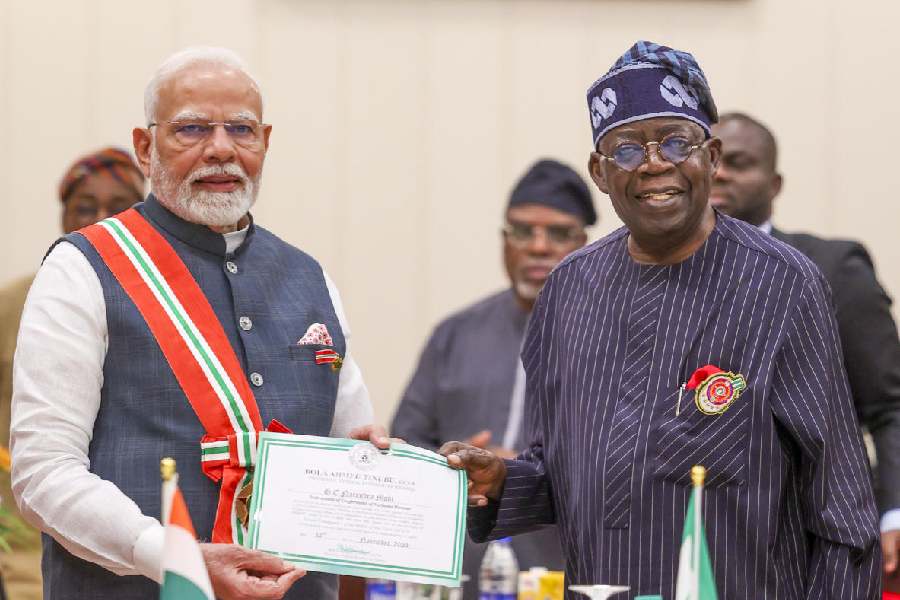President Biden on Tuesday forcefully rejected criticism of his decision to end America’s 20-year war in Afghanistan, hailing what he called the “extraordinary success” of the evacuation of Kabul and declaring the end of an era in which the US uses military power “to remake other countries”.
Speaking to the nation less than a week after a terrorist bombing killed 13 service members at the Kabul airport during a chaotic rush to leave the country, Biden said the costs to the US would have been even higher if he had allowed the nation to remain mired for years in a civil war that has dragged on for decades.
In blunt terms, he claimed the only alternative to the departure he oversaw was another escalation of the war.
“When I hear we could have, should have continued the so-called low-grade effort in Afghanistan, at low risk to our service members, at low cost,” Biden said in the 26-minute speech, “I don’t think enough people understand how much we’ve asked of the 1 per cent of this country who put that uniform on.”
“There’s nothing low grade or low risk or low cost about any war,” he continued. “It’s time to end the war in Afghanistan.”
The President delivered his remarks just shy of 20 years after the US ousted the Taliban from power in the wake of the September 11 attacks, and just a day after the last American troops and diplomats departed the country, which is once again under Taliban rule.
Biden declared that he believed with “all of my heart” that he had made a wise decision.
But he appeared defiant as he sought to counter a torrent of criticism from Democrats and Republicans — and from some families of the service members killed in Kabul last week — for his handling of the withdrawal.
The President refused to offer any sort of mea culpa on Tuesday, even as the Taliban celebrated their “independence” from America with gunfire in the streets of Kabul.
Instead, the President sought to justify his handling of the final weeks of the war, saying that the US military and its diplomats deserved credit and thanks for ferrying out more than 120,000 Americans and Afghan allies in the face of the Taliban takeover and terrorist threats from
IS-K, an affiliate of the Islamic State.
Biden expressed deep remorse for the loss of lives in the explosions at the airport last Thursday, including scores of Afghans, but he dismissed the argument that his administration should have — or could have — conducted the final withdrawal in a “more orderly manner” by evacuating people earlier, before the Taliban takeover of the country was complete.
“I respectfully disagree,” Biden said, at one point pounding his finger on the lectern and delivering a sense of righteous indignation about the second-guessing from critics on Capitol Hill and others outside the administration.
At the heart of Biden’s argument is a bet that Americans — a majority of whom say they support an end to the war — as well as historians will judge his decision to withdraw troops as the only acceptable one, given the situation on the ground when he came into office at the beginning of the year.
Withdrawing from Afghanistan was a central campaign promise, and White House officials believe that a majority of voters will reward the President for following through on what he said he would do.
Biden portrayed himself as a leader who took the only course available to him through a thicket of bad choices, laying blame on the Afghan Army and his presidential predecessor, Donald J. Trump, who reached an accord with the Taliban last year that committed the US to fully withdraw by this past May. He said that the US had “no vital interest in Afghanistan other than to prevent an attack on America’s homeland” and that the war should have ended a decade earlier.
“That was the choice, the real choice between leaving or escalating,” Biden said, his voice frequently rising to sort of an indoor shout. “I was not going to extend this forever war.”
In making that argument, Biden offered a glimpse of a different American foreign policy in the post-9/11 world. He said he would shun ground wars with large troop deployments, instead favouring a strategy guided more by economic and cybersecurity competition with China and Russia and focused on countering threats with military technology that allows strikes against terrorists without having large contingents of troops based on the ground in a place like Afghanistan.
Biden called it a “new era” of the use of American power in which the US would no longer seek to reshape its rivals in the way three previous presidents tried to do in Afghanistan and Iraq. He said that “the world is changing” and that American leadership must change with it.
“As we turn the page on the foreign policy that has guided our nation the last two decades, we’ve got to learn from our mistakes,” he said.
New York Times News Service

